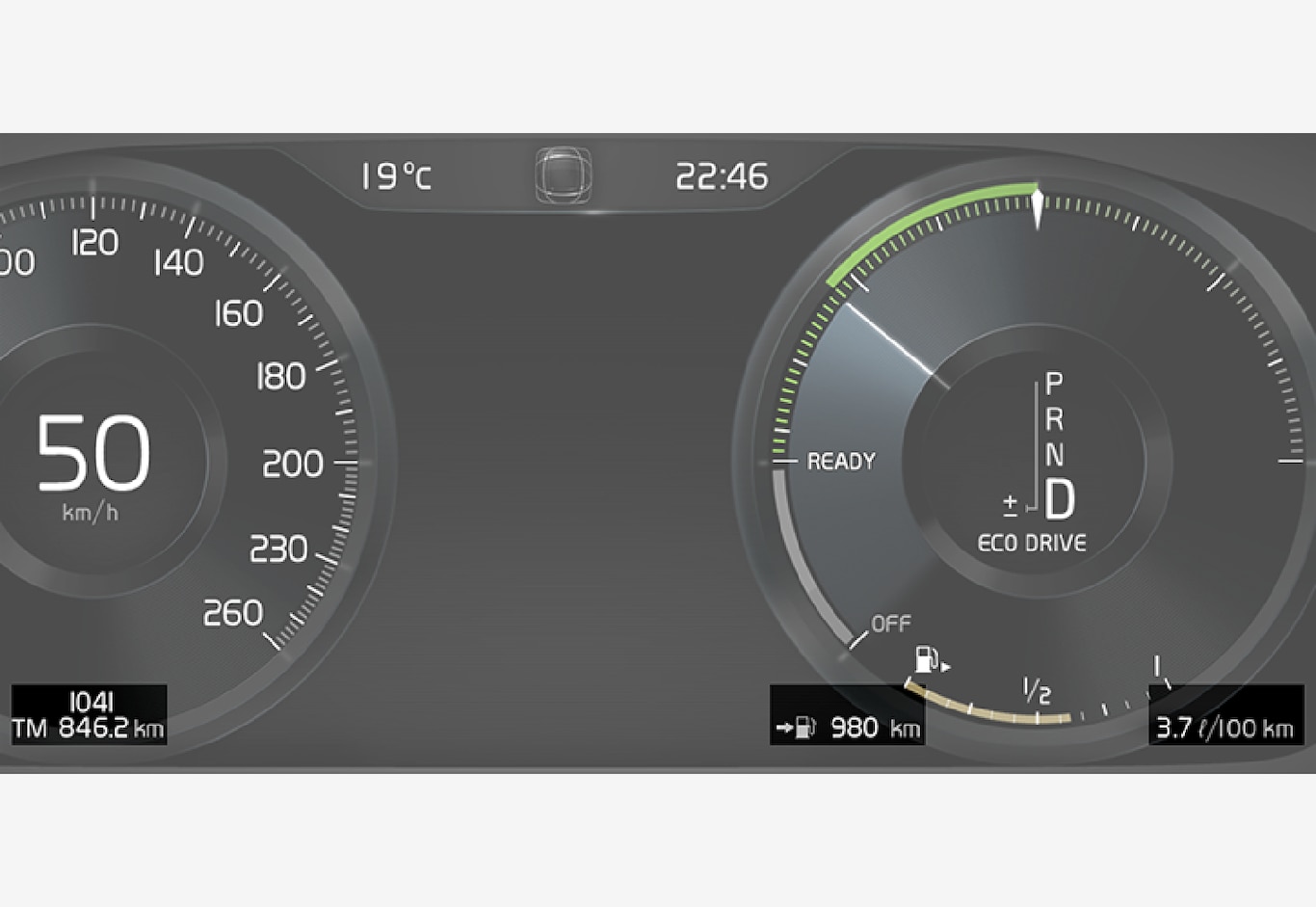In order to facilitate fuel-efficient driving, information is recorded about both instantaneous and average fuel consumption. The information from the trip computer can be shown in the driver display.

Examples of trip computer information in the driver display.1
The following meters are included in the trip computer:
- Trip meter
- Odometer
- Instantaneous fuel consumption
- Distance to empty tank
- Tourist - alternative speedometer
Units for distance, speed, etc. can be changed via system settings in the centre display.
Trip meter
There are two trip meters, TM and TA.
TM can be reset manually and TA is reset automatically if the car is not used for at least four hours.
The following information is registered while driving:
- Mileage
- Driving time
- Average speed
- Average fuel consumption.
The values apply from the trip meter's latest reset.
Odometer
The odometer records the car's total mileage. This value cannot be reset to zero.
Instantaneous fuel consumption
This gauge shows the fuel consumption that the car has at the moment. The value is updated approximately every second.
Distance to empty tank
The trip computer calculates the remaining mileage with the fuel available in the tank.
The calculation is based on the average fuel consumption over the last 30 km (20 miles) and the remaining drivable fuel quantity.
When the gauge shows "----", there is not enough fuel left to be able to calculate the remaining mileage. Refuel as soon as possible.
Note
An economic driving style generally results in a longer driving distance.
Tourist - alternative speedometer
The alternative digital speedometer makes it easier to drive in countries where speed limit signs are in a different unit than that shown in the car's instruments.
The digital speed is then shown in the opposite unit to that shown in the analogue speedometer. If the analogue speedometer is graduated in mph, the digital speedometer shows the corresponding speed in km/h and vice versa.